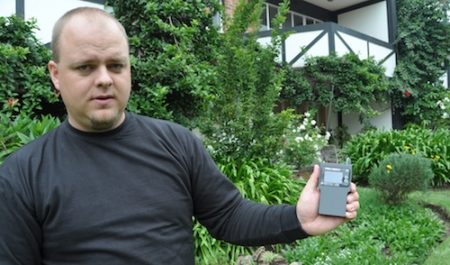
Scandal-plagued UK tabloid News of the World published its last issue on Sunday following accusations the newspaper hacked into the voice mailboxes of more than 4 000 people. But how easy or difficult is it to do this type of hacking? And how prevalent is it exactly?
Etienne Labuschagne, MD of SpyCatcher SA, which develops and imports a wide range of surveillance equipment and other hi-tech gear, says it’s “actually very easy”. He explains that there are three methods people can use to gain access to someone’s voice mail or any other information on a mobile phone. Of course, he cautions that the practice is illegal.
The first way it can be done is using malware. “There’s software you can create for a mobile phone that can be sent as an SMS,” Labuschagne says. “Once the person reads the SMS, it installs an application in the background that can do things like forwarding a copy of all incoming messages via e-mail.”
Labuschagne says another common tactic, and the cheapest, for bugging or tracking cellular phones or gaining access to voice mail is simply getting hold of the actual device. “If someone can get to the device, they can either embed hardware or software in it, or switch it for a modified device. Aside from being able to access conversations, text messages and e-mails, the phone can then also be used as a room bug.”
The third and most expensive method is via government or network operators themselves. “You can buy someone off in government or at the operator.”

Labuschagne says gaining access to thousands of people’s voice mail would require government contacts, as government is the only body entitled to access voice mails across multiple networks. “Money talks, unfortunately.”
Although the ability to listen in to calls and voice mail is only meant to be available to government, “with the right contacts and the right software it’s easy to arrange. It’s been going on for years,” he says.
“Many people think that this sort of thing isn’t happening — that corporate espionage is just something you see in movies,” says Labuschagne. “But that’s just not the case. As more people use these kinds of methods, more of them are getting caught. We live in an era where you can buy bugging gear for a few dollars … and where people will move mountains to get information first.”
Labuschagne says News of the World was simply “one of the unlucky ones that got caught doing it”. He suggests the newspaper got complacent after having gotten away with the practice for so long.
“It used to be easy to say people were just paranoid,” says Labuschagne. “I’m dealing with more and more clients every day who have these problems.”
The only way to ensure one’s phone calls, SMS messages and voice mails are entirely secure is to encrypt conversations, he adds. “The only way to be 100% sure is by using point-to-point encryption, where your unit and mine are both encrypted.”
With corporate espionage on the rise, he says that many companies are opting for counter surveillance strategies to protect their information, particularly because prevention is always easier than prosecution.
“I recently dealt with a company that knew it had been bugged by competitors. But the problem is that in order to prosecute, the company would have to produce extensive evidence. Even then, that doesn’t stop it in the interim.” — Craig Wilson, TechCentral
- Subscribe to our free daily newsletter
- Follow us on Twitter or on Facebook


